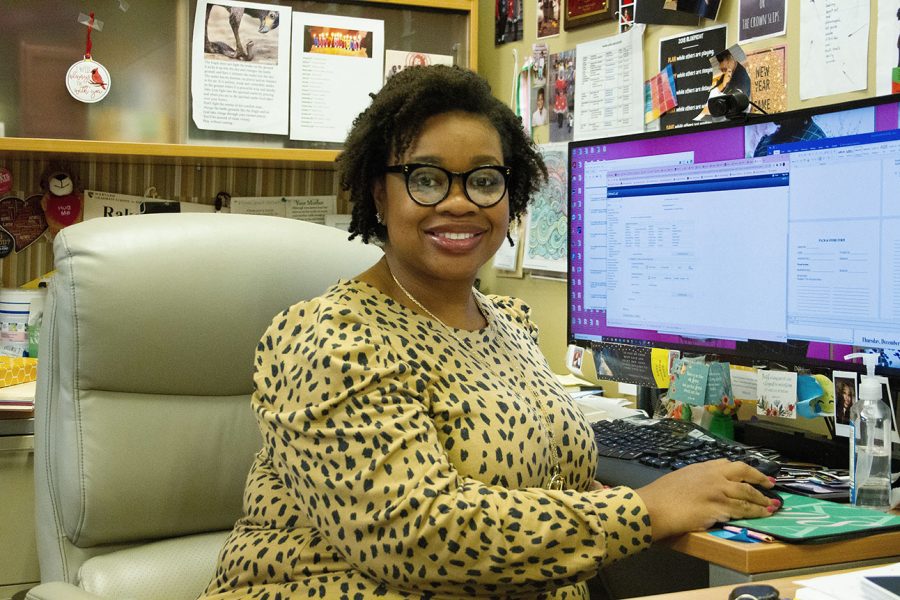Hines responds to questions regarding housing, vacancies
JAELYN STANSBURY/CHIEF PHOTOGRAPHER
Assistant Vice President for Student Affairs Rakesha Hines explains the issue of housing shortages in the fall and possible alternatives for the university in the future.
January 28, 2023
Rakesha Hines, Ph.D, assistant vice president of Student Affairs and housing director at Alabama State University, explained there is housing available for the spring semester.
During spring semester, the number of students residing on campus typically decreases by 15% – 18% due to fall graduation.
According to Hines, once housing is full, a waiting list is created on the housing portal. As rooms become available students on the waiting list are contacted.
Because fall housing is in demand and students are fighting for rooms, Hines said that alternative plans have been discussed such as increasing housing on and off campus. However, these are not plans that can happen overnight. This process could take approximately six months to a year to develop and finalize building plans.
Hines believes if the university decided to build a new residence hall on campus, it would most likely be a co-ed facility for upperclassmen.
“However, there is no way to know for sure until you analyze all things including enrollment and demography,” she said. There have also been discussions about off-campus apartments as well but the university would not manage them, which can cause other underlying issues.
Proposals to have an off-campus facility that would house students is a topic of discussion, however, there are more cons than pros when it comes to an off-campus apartment. The cons include, but are not limited to, transportation, bills, engagement and campus involvement.
“Hopefully, we will see an increase in enrollment and it will all line up and come to fruition,” Hines said. “We are seeing an increase in enrollment and when the time comes, everything will fall into place with alternative off-campus housing options.”
Hines said the lack of housing during the fall is not unique to Alabama State University and that different universities handle the lack of housing differently.
“An example would be just housing first and second-year students on campus while upperclassmen would have to find off-campus alternatives,” she said. “However, juniors and seniors are then left in a crisis when they are no longer able to remain on campus. This is not a feasible option for the student population at Alabama State.”
With COVID-19 restrictions lifted, there is now an increase in the need for housing from students returning from remote classes. Now with things returning to normal, visitation will soon be returning with a tentative date of Feb. 13.
According to Hines, visitation is a person visiting your room/building that is not a resident of that building. All visitors must be university students or 18 or older to visit. Residents and visitors must be checked in at the front desk and must present a university identification or state identification. Only one visitor can be checked in at a time. Residents must come down with their visitors to check out and be at the front desk 10 minutes prior to midnight. Permitted hours are noon-midnight. Violating these guidelines can result in a fine or loss of visitation privileges. Hines said that more information will be disseminated later about the procedures for visitation.
The housing portal for returning students for fall 2023 opens April 3, at 9 a.m. A student must register for classes and have a filing FAFSA to apply. A $250 non-refundable deposit is required.
“We want to ensure that we build a community for you of living and learning on this campus,” Hines reiterates. She wants the students to know that the staff and faculty are here to nurture them and get them through to the next level. Being the product of a historically black university herself and having that in common with the students, helps her to be relatable. She has an open-door policy for questions, concerns and any issues that a student may have regarding housing.
There are lessons and takeaways that you get from an HBCU that you will not get elsewhere.
“You have to know what this culture is and know how to thrive and know that you are being nurtured in this setting,” Hines said. “Do not take this experience for granted and take all that you can from this institution.”







